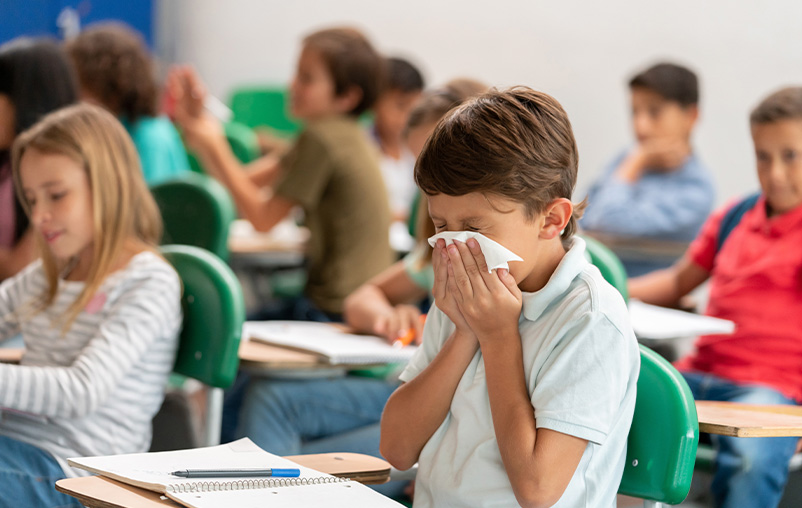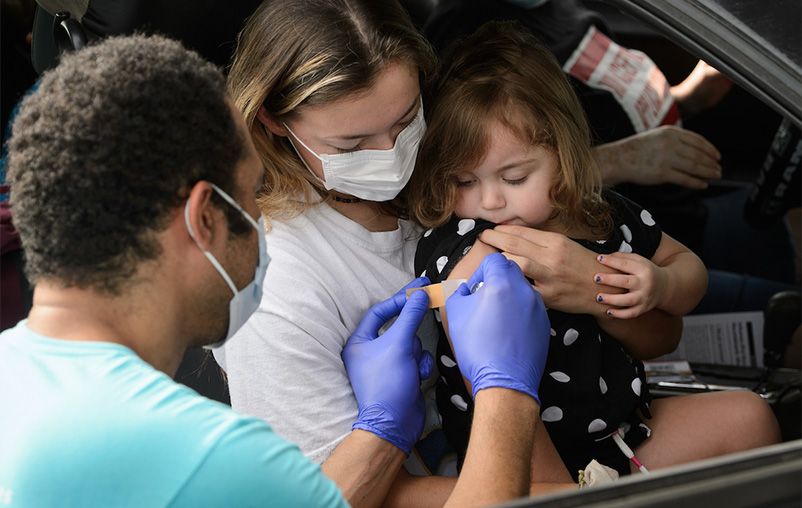In recent months, we’ve heard news stories about the doctors and nurses who are working on the front lines and behind the scenes fighting COVID-19. Unless you work in the medical field, some of the terms and titles can be confusing. We want to help you understand the differences between the various doctors involved in the pandemic and the key roles they play in our treatment and future protection.
What does an infectious disease doctor do vs. an epidemiologist or are they the same?
They’re not the same, but they are closely related. Infectious disease doctors specialize in infectious disease medicine, which is a subspecialty of internal medicine. They treat patients and help prevent, diagnose and treat diseases caused by bacteria, viruses, fungi and parasites. Most of these specialists have additional knowledge in the areas of immunology, epidemiology and infection control.
They use their knowledge of epidemiology and clinical syndromes to make decisions about managing patients. This knowledge often saves lives because treatments can be started before patients become deathly ill. Often the infectious disease specialist is the first to notify the epidemiologist that a new disease is spreading in a community.
What is epidemiology and what does an epidemiologist do?
Some epidemiologists are infectious disease medical doctors, while many epidemiologists have doctors of public health degrees and work outside a hospital setting. Epidemiologists look at the big picture, using outbreak investigation methods and a large amount of data to get at the root cause of a disease. They are critically important in guiding communities to effective disease and injury prevention. When it comes to epidemiology, it’s the community that’s being “treated” or studied to reduce outbreaks of illness or injury.
Epidemiology is the study of the distribution and causes of diseases and health conditions in certain populations. Epidemiologists use scientifically based, systematic data analysis to determine what is causing health problems within a given community or geographic region.
Infectious disease epidemiology includes the study of diseases such as COVID-19, Ebola, HIV/AIDS, tuberculosis, sexually transmitted infections, foodborne illness and diarrheal pathogens, among others. It also includes research related to the development and evaluation of vaccines.
Epidemiologists are disease detectives. While epidemiologists search for the cause of a new or challenging disease, they focus their efforts on how to stop it from spreading and prevent another outbreak or incident of the disease.
Their work is not limited to infectious diseases. According to the Centers for Disease Control and Prevention, epidemiologists study and investigate the following types of public health problems:
- Environmental exposures
- Infectious diseases
- Injuries
- Non-infectious diseases
- Natural disasters
- Terrorism
“Infectious disease doctors are clinicians who treat individual patients with infections, using their knowledge of epidemiology, pharmacology, and medicine, while epidemiologists ‘treat’ communities through behavioral change to reduce the prevalence of all kinds of diseases, including non-communicable diseases and injuries. Infectious disease doctors use antibiotics to cure infections, while epidemiologists use data sets and communications skills as their tools to help heal communities,” said Dr. Ruth Berggren, a UT Health San Antonio infectious disease professor who practices at University Hospital.
When patients become sick with an undiagnosed illness, frequently they’re referred to an infectious disease medicine specialist who can help diagnose and manage difficult or unusual infections.
“We work as a team,” Dr. Berggren added. "I often work closely with primary care doctors and nurses as well as pediatricians, surgeons and emergency medicine doctors when needed, to guide the treatment of patients with complicated infections such as bacterial sepsis (blood stream infections), endocarditis and emerging infectious diseases like SARS-CoV-2 and others.”
What does an immunologist do?
Immunologists frequently engage in medical research, but they also treat patients with immune system problems and autoimmune diseases such as lupus, rheumatoid arthritis and multiple sclerosis. They study the regulation of the immune system to help treat these and other diseases like cancer.
Regarding COVID-19, immunologists from all over the world are researching and studying the natural and adaptive immune responses brought on by SARS-CoV-2 infection in an effort to understand the immunological pathways that determine the severity of one person’s illness compared to another. They’re also strategizing about how to develop clinical trials that will be successful in treating this new virus.




